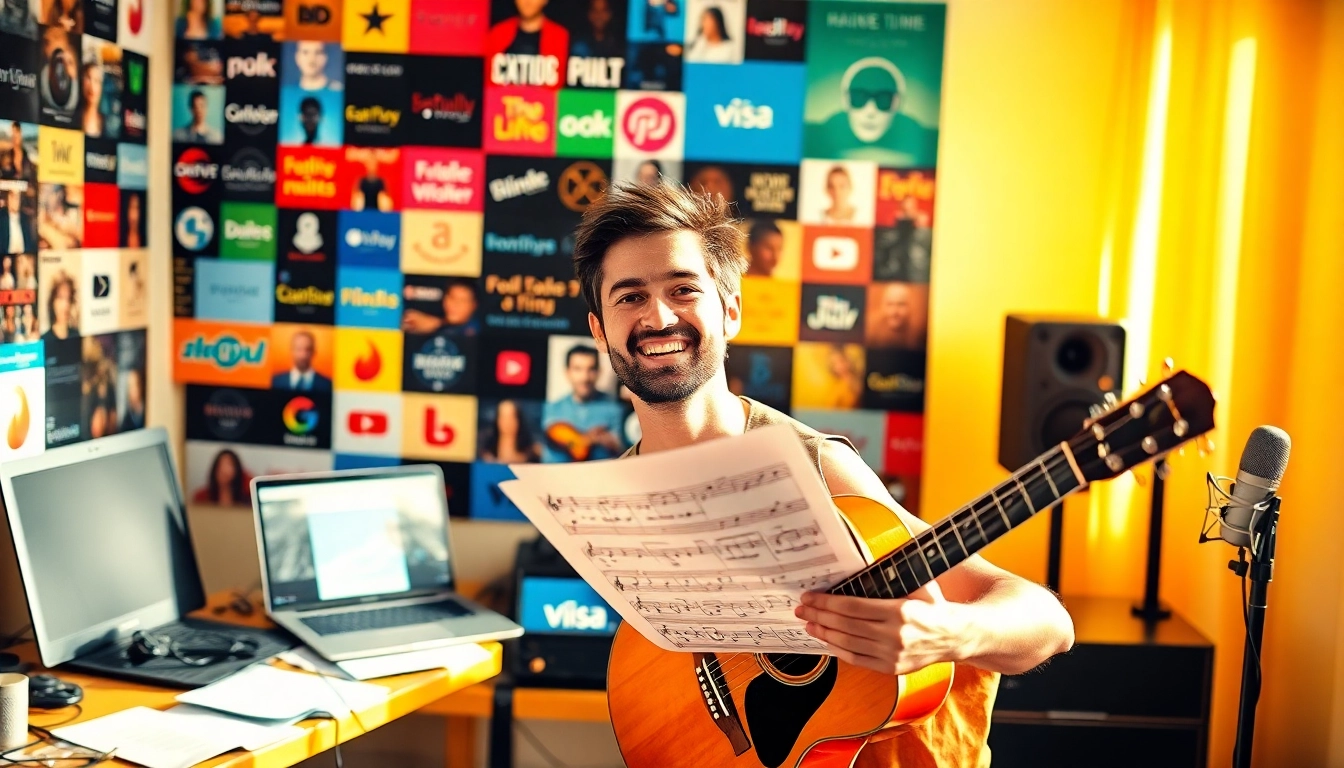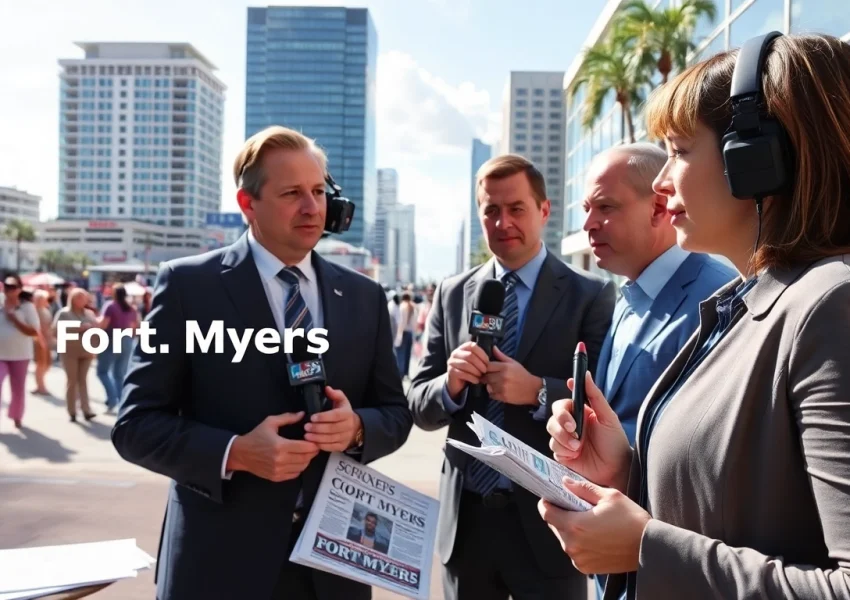Understanding Music Pitching
What is Music Pitching?
Music pitching refers to the practice of presenting a song or musical project to industry professionals, such as record labels, playlist curators, influencers, and media outlets. The goal is to get your music heard, promoted, and ideally, featured on platforms that will reach a wider audience. Unlike a performance, pitching involves a strategic sales approach to make your work stand out in a crowded field.
At its core, it’s about crafting a narrative around your music that resonates with the intended audience and recipients. This can include highlighting the story behind the song, the production process, and its relevance to current trends. For aspiring artists, particularly those navigating the evolving digital landscape, mastering the art of music pitching can be a significant factor in their success.
The Importance of Music Pitching for Artists
For many artists, music pitching is not just important; it’s essential. In an industry that can be overwhelmingly competitive, effective pitching can lead to opportunities that might otherwise be out of reach. Here are several reasons why it holds such value:
- Visibility: A successful pitch can place your music in front of key influencers and potential fans, greatly increasing your exposure.
- Professional Relationships: Pitching is an opportunity to network with industry professionals, potentially leading to partnerships and collaborations.
- Feedback and Learning: Through responses (or lack thereof), artists gain insight into their marketability and audience preferences, which can shape their future projects.
- Monetization Opportunities: A strong pitch could lead to licensing deals, live performance opportunities, and more.
Common Misconceptions about Music Pitching
Many artists harbor misconceptions regarding music pitching that can hinder their efforts. Here are a few common myths debunked:
- It’s Only for Established Artists: Many believe pitching is reserved for big-name artists, but indie and emerging artists can successfully pitch their music too.
- Pitching is a One-Time Activity: Some think that after one pitch, either success or failure, the effort stops. In reality, continuing to pitch and refine efforts is vital.
- All Pitching Platforms Are the Same: Different platforms carry unique audiences and attributes. Understanding this can help tailor your approach.
Preparing Your Music for Pitching
Choosing the Right Track for Your Pitch
Choosing the right track is critical when preparing to pitch your music. Not all songs will translate equally to specific audiences or platforms. Consider the following:
- Market Trends: Analyze current music trends to determine which of your songs aligns best with the prevailing tastes in your target audience.
- Your Best Work: Always pitch your strongest material. This might mean seeking feedback from peers or industry professionals to identify your standout tracks.
- Fit for the Platform: Different platforms have different requirements. A song perfect for a Spotify playlist might not work for a radio station, so tailor your choice accordingly.
Creating a Strong Pitch Strategy
A strong pitch strategy is vital to ensure your music gets the attention it deserves. Here are key components to consider:
- Research: Understand who you’re pitching to. Knowing the preferences of curators or editors allows you to tailor your pitch effectively.
- Timing: Consider the appropriate timing for your pitches. For instance, submitting to playlist editors at least a week before your release day can give your song a better chance of being featured.
- Follow-Up: Don’t hesitate to follow up on your pitches, but do so respectfully and at appropriate intervals.
Essential Materials Needed for Effective Music Pitching
When pitching your music, having the right materials is paramount. Essential components include:
- Professional Recordings: Ensure your tracks are mixed and mastered to a high standard.
- Press Kit: A digital press kit (EPK) that includes your bio, photos, previous work, and social media links can help in providing context.
- Pitch Email: A well-crafted pitch email is essential for communicating effectively with potential promoters, curators, and media.
Top Platforms for Music Pitching
An Overview of Major Music Platforms
There are numerous platforms available for music pitching, each serving unique audiences and purposes. Understanding these can help in crafting a more effective outreach strategy:
- Spotify: Utilizing Spotify’s ‘Song Submission’ tool allows artists to pitch directly to playlist editors.
- Apple Music: Similar to Spotify, Apple Music has a ‘Pitch’ feature for upcoming releases which guarantees exposure.
- SubmitHub: A platform that connects artists with music blogs and playlists, enhancing your chances of being promoted effectively.
How to Utilize Social Media for Music Pitching
Social media platforms are powerful tools for music pitching, enabling artists to promote their work directly to audiences and influencers alike. Strategies to employ include:
- Engagement: Interact with fans and influencers by sharing behind-the-scenes content, releases, and engaging stories.
- Xplore Collaborations: Partnering with influencers or other artists can expand reach and provide new avenues for pitching your music.
- Targeted Ads: Utilize social media advertising to reach a larger and more specific audience.
Getting on Spotify Playlists: Tips and Tricks
Getting featured on Spotify playlists can significantly boost an artist’s career. Here are strategies to increase your chances:
- Pre-Save Campaigns: Encouraging fans to pre-save your singles can lead to increased visibility when they release.
- Utilize User-Curated Playlists: Reach out to smaller playlists by engaging with their curators. Personalizing your approach can be more effective.
- Share on Other Platforms: Maximize your pitch by promoting your song through your other social media channels, increasing the likelihood of playlist engagement.
Crafting Your Music Pitch
Writing a Compelling Pitch Email
Your pitch email is often the first interaction potential curators and influencers will have with you. A compelling email should be succinct yet engaging:
- Big Opening: Start with a hook. Your first sentence should grab attention immediately.
- Clear Subject Line: Use a descriptive subject line – something straightforward that indicates your purpose.
- Professional Tone: Be informative but personal, showing genuine enthusiasm without being overly promotional.
What to Include in Your Pitch
A successful music pitch should include several core components:
- Your Story: Briefly explain what makes your music unique and the story behind the song.
- Track Details: Give specifics about the track, such as its genre, influences, and why you think it would resonate with their audience.
- Links: Include links to your song or relevant media (audio/video) and social media platforms, allowing easy access for curators.
Common Mistakes to Avoid When Pitching
While crafting your pitch, be mindful of common pitfalls that many artists make:
- Generic Messages: Avoid sending out mass emails without personalization; it shows a lack of effort and consideration.
- Ignoring Requirements: Each platform or curator may have specific submission guidelines. Ignoring these can lead to immediate rejection.
- Making it Too Long: Simplicity is key; sticking to relevant information helps keep curators engaged.
Measuring Your Pitching Success
Tracking Engagement and Responses
After your pitch is sent, it’s crucial to track its effectiveness. Here’s how you can assess engagement:
- Email Analytics: Use tools that provide open rates and click-through rates for your emails.
- Social Engagement: Monitor how your pitches affect your social media engagement and streaming numbers.
- Follow-Up Responses: Keep track of responses from your pitches to see which are garnering attention.
Adjusting Your Strategy Based on Feedback
Feedback from your pitches presents an opportunity for growth. Utilize critique to adjust your strategy:
- Reflect on Feedback: Whether it’s positive or negative, use feedback to understand the preferences of curators and fans more deeply.
- Testing Variations: Experiment with different pitches and track what format gets better reactions.
Long-term Benefits of Effective Music Pitching
Investing time and effort into music pitching can yield numerous long-term benefits:
- Building Your Network: Regularly pitching can expand your connections within the industry.
- Increased Fan Engagement: Continued exposure leads to a growing fan base and better overall audience connection.
- Enhanced Industry Knowledge: Engaging with industry professionals provides insights that can shape your future music-making and pitching endeavors.






